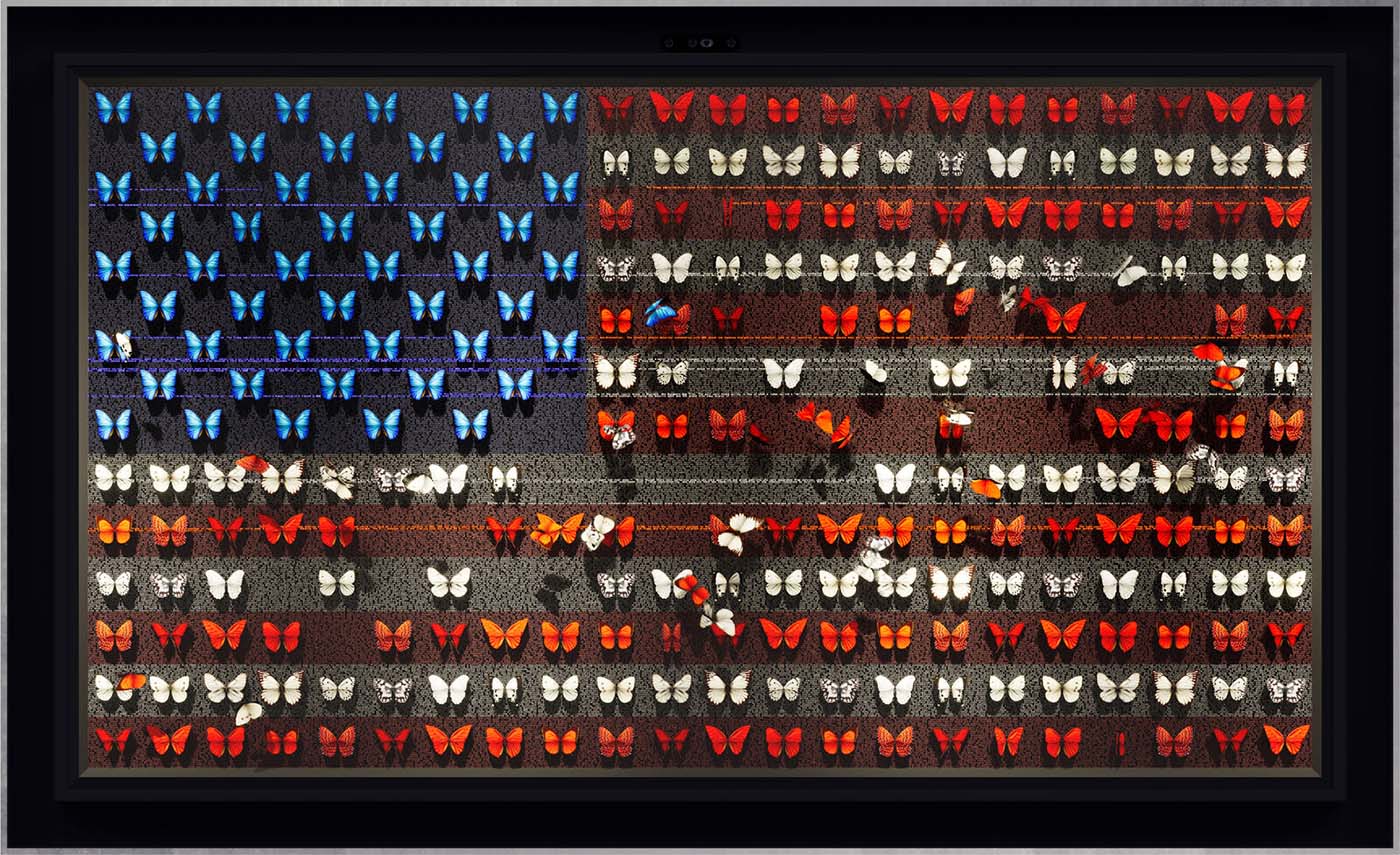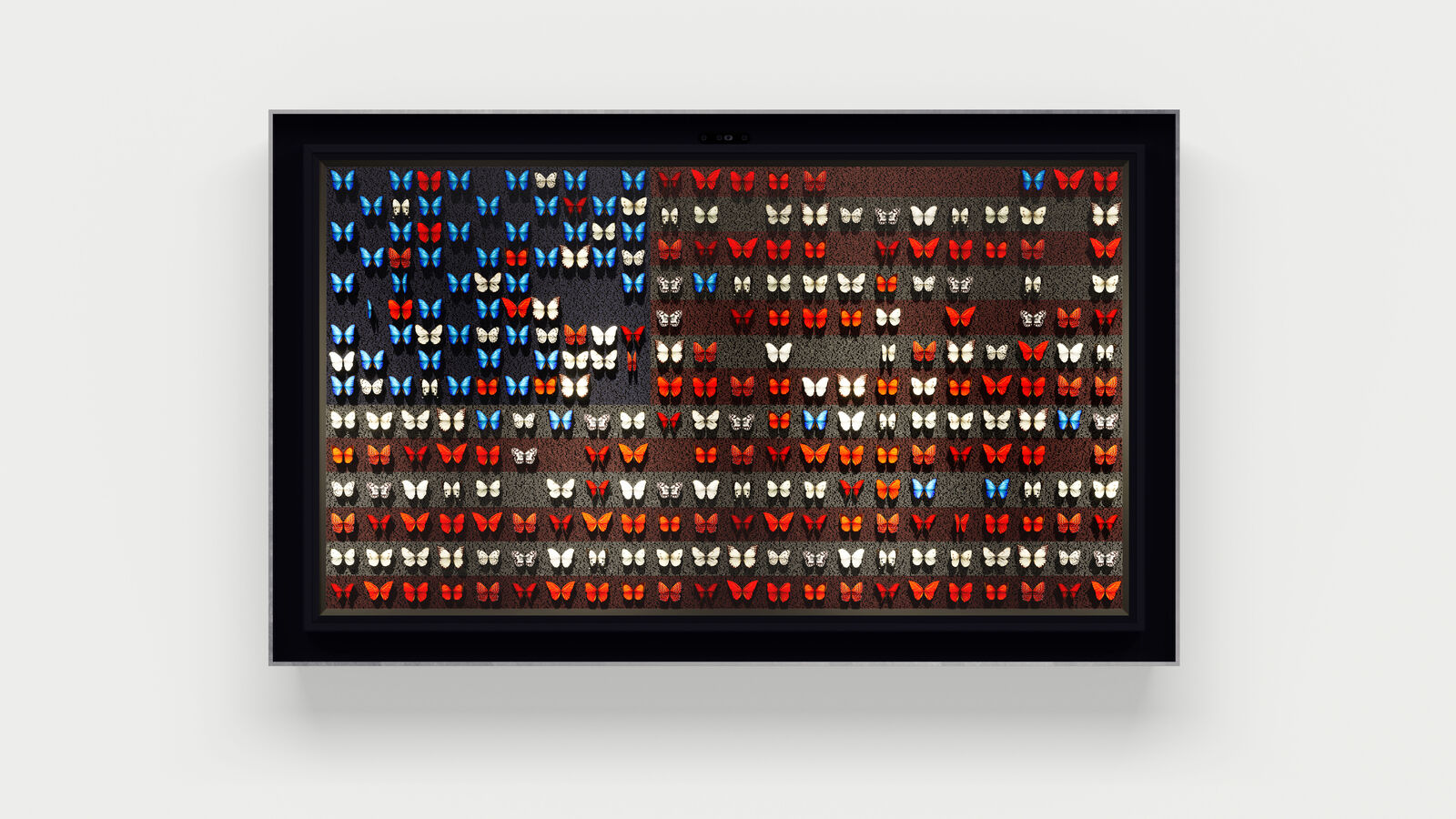 ⤣ SERIES
⤣ SERIESBaby Flutter: Full Series
Baby Flutter is a collection of artworks that explores Harris' fascination with butterflies and their exquisite forms. Within the interactively controlled pieces, each individual butterfly is brought to life through innovative technologies that facilitate unique viewer engagement.
Drawing on his travels and experiences, Harris has selected his favourite ten butterflies, one for each of the LCD screens. Some are native to specific regions he has visited, while others are commonly found across the globe. Each species has been reinterpreted as a 'living' portrait, exhibiting their particular attributes. As a viewer approaches the artwork, the butterflies change from resting pose to flight mode, tracking the viewer's movements in an effort to display their beautiful wings in slow-motion flight.
The Collection
Images
Information
Year:
2012
Edition:
Edition of 8 + 2 Artist Proofs + 2 Museum Proofs per butterfly species
Materials:
Code, electronics, display screen, aluminium
Details:
Dimensions (Metric):
28 x 23 x 6 cm
(W x H x D)
Dimensions (imperial):
10.8 x 8.8 x 2.4 inches
(W x H x D)
Commissioned by:
Context
"Fascination with the butterfly is not a recent phenomenon in the art world. From Vincent van Gogh to Salvador Dalí, the butterfly has presented itself as a timeless kindred spirit, offering a variety of interpretations many of which have had a long-standing presence in popular culture, film and literature, as well as art. With their enormous palette of colours, as well as their fragility and variety, butterflies have often been used to symbolise aspects of human nature. The wide range of interpretations is as far-reaching as the many species of butterfly found across the world. One of the more compelling in art history has been the representation of humanity’s capability for transformation. Contemporary artists of different mediums have grasped this historical precedence and upheld the numerous symbolic references, so that the butterfly has come to signify a ubiquitous theme: the duality of life and death. Dominic Harris has built upon these foundations by using the butterfly not only as an art piece, but also as a design object. The viewer is in the direct gaze of Harris’ interpretation as well as the butterfly’s natural creative spirit, allowing new discourses between the audience, the artist and these colourful insects to take shape."
Extract from essay by Harman Bains
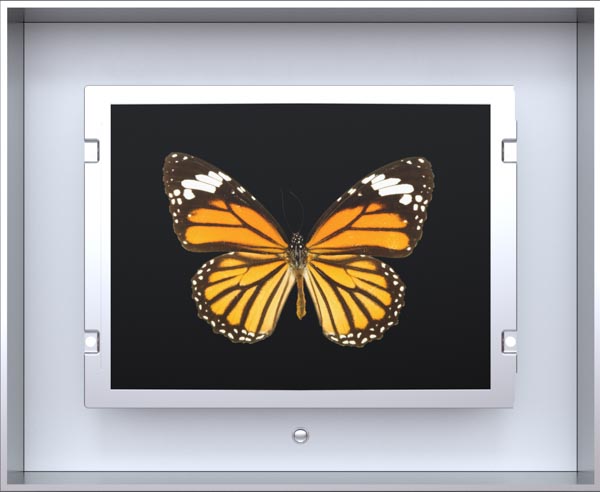
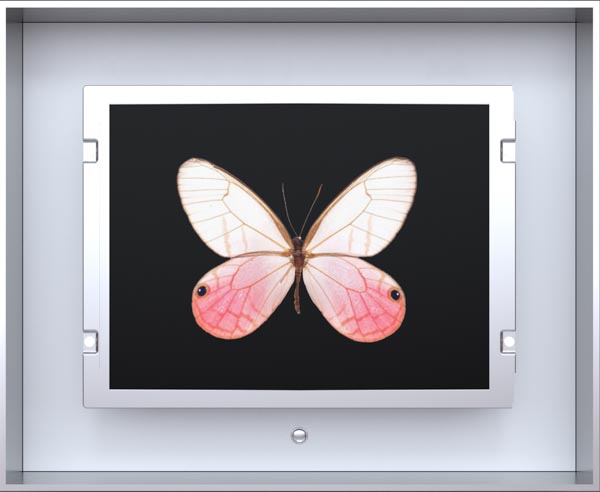
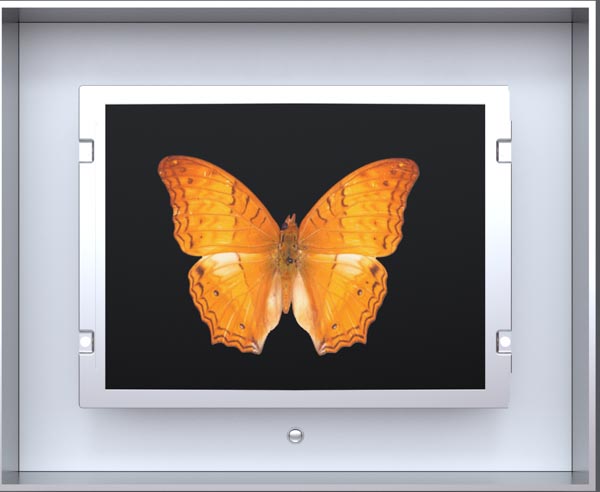
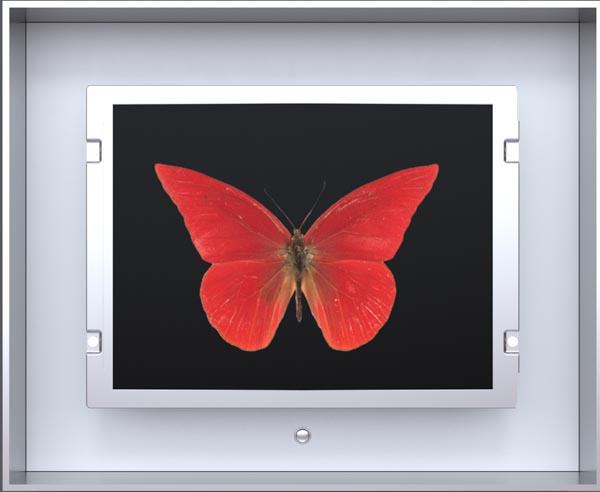
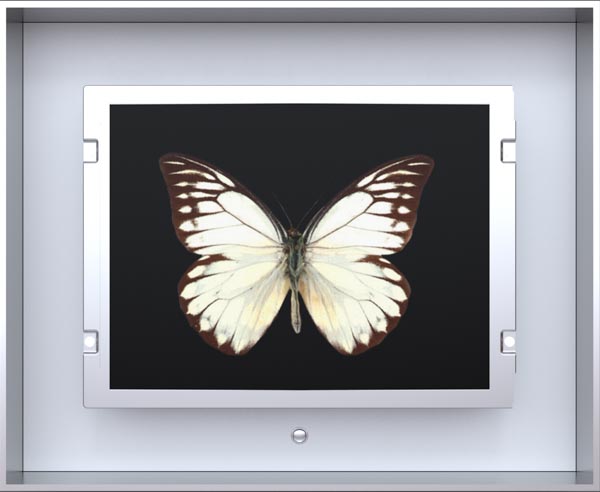
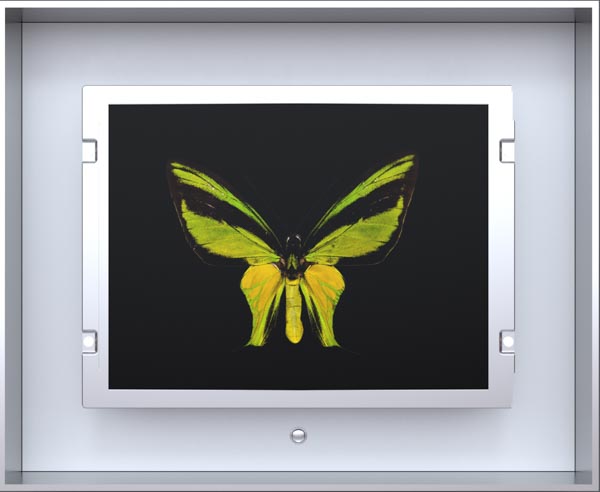
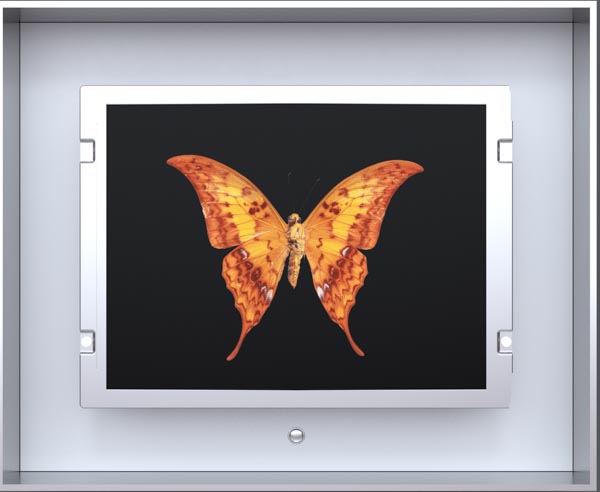
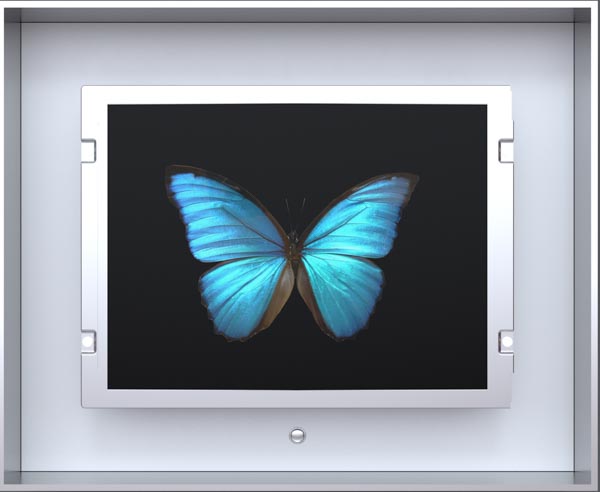
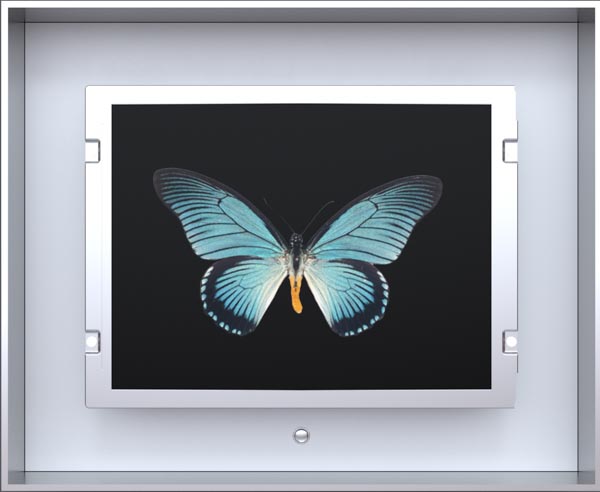
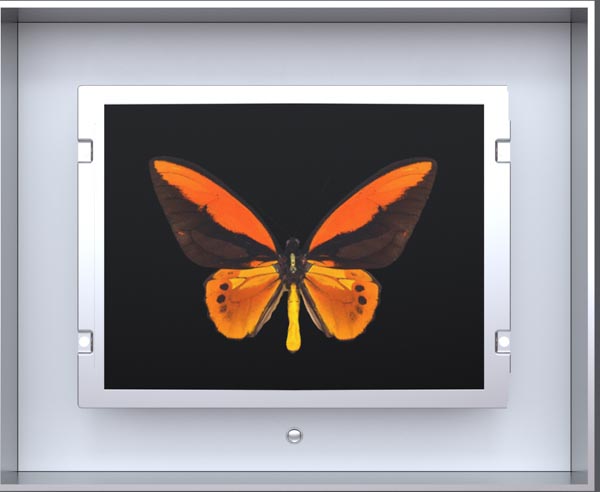



.webp)









